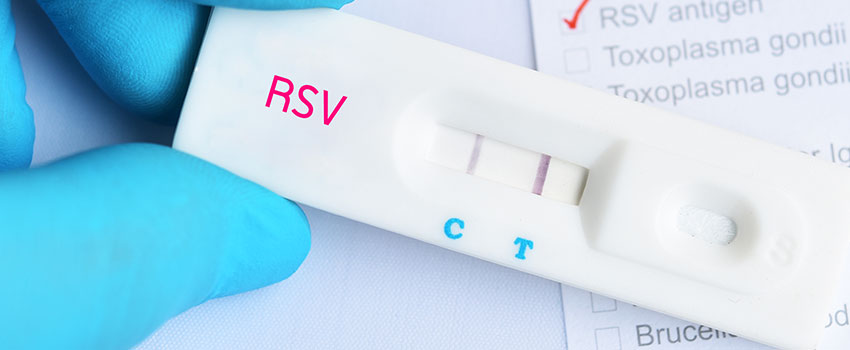
This season can be a really wonderful time of year with parties, holidays and family traditions, but it can also be a really frustrating or even a dangerous time of year. Respiratory infections are more common during the fall and winter months, especially when it comes to RSV.
RSV, or respiratory syncytial virus, can range in severity from mild cold-like symptoms all the way to a life-threatening infection.
Our AFC Urgent Care Farragut team wants you to stay informed about the different symptoms associated with respiratory infections and RSV, so read on to learn more.
How Does RSV Spread?
RSV is a viral infection that is most commonly spread through airborne droplets. A single uncovered cough or sneeze from an infected person could cause an entire outbreak! You can also get it through direct contact, which is why it is recommended to limit the amount of people who can hug and kiss your small children at this time of year.
RSV typically starts to produce symptoms just a few days after exposure and will often start slowly. Cold-like symptoms can appear and may seem like more of a nuisance than anything. However, don’t let your guard down! RSV can quickly progress into a severe or even deadly infection.
Symptoms of Common Upper Respiratory Infections
- Fever
- Runny nose/congestion
- Sore throat
- Cough
- Muscle or body aches
How Can I Treat RSV?
Come see us if you or your child is experiencing symptoms of a respiratory infection. We can run an RSV rapid test to diagnose your little one accurately in as little as 15 minutes. Once we know what you have, we can offer reliable symptom management strategies to help provide some relief.
RSV is a virus and cannot be treated by antibiotics, so managing symptoms and getting proper rest is crucial for making a quick recovery. Most people will recover in a week or two, but watch small children closely. Any sign of respiratory distress should prompt you to seek medical attention immediately.
Signs of a Serious Infection
- Shallow breathing or chest contractions
- A high fever that won’t go away
- Blue skin or fingernails
- Chest pain
If you aren’t feeling well, we can help. Come see us at AFC Urgent Care Farragut.


